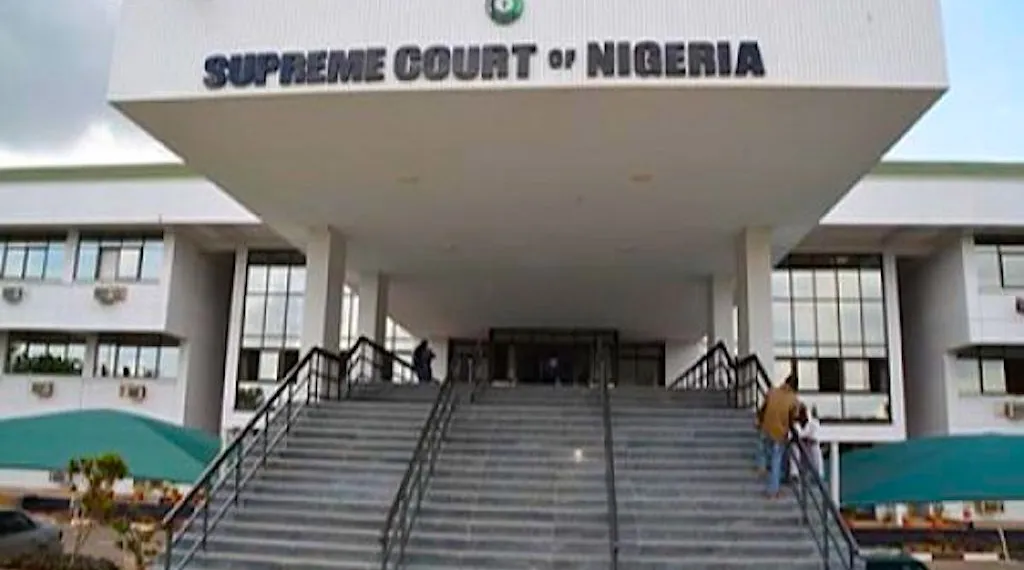Friday, January 12, 2024 must stand out in the annals of our besmirched and embattled judiciary. For it was on that fateful day that the Supreme Court rose to the occasion and ruled on eight governorship elections, namely those of Lagos, Kano, Zamfara, Ebonyi, Plateau, Abia, Cross River and Bauchi states.
The verdicts were outstandingly epochal and valiant. They resonated with the Nigerian people, who were shortly before these verdicts, on tenterhooks. On the eve of the verdicts, the nation was on the brink of abyss. Apocalypse awaited ominously.
The massive crowds that welcomed some of the governors to their respective states in the aftermath of the verdicts, notably those of Kano and Plateau, were an eloquent statement. Kano and Plateau states were the cynosure of Nigerians because their governors had earlier been sacked by lower courts.
Not only did the judgements reflect the intendment and true wishes of voters, particularly in these two states, the cause of justice was robustly served. It is best left to the imagination what would have transpired if the verdicts went otherwise. Or if they had been cynically perverted. Some of these states would have erupted in conflagration and the Nigerian State, itself, would have transformed into a cauldron.
Mercifully, the Supreme Court prevailed. It did justice. And its justices that day became sublime purveyors of justice, a critical ingredient which was sorely lacking in the Court of Appeal. The Court of Appeal carried itself in the sordid manner the Prophet Isaiah once wrote, “And judgment is turned away backwards, and justice standeth afar off: for the truth is fallen in the street, and equity cannot enter”.
By departing from the path of infamy, the Justices of the Supreme Court appeared to have put the judiciary on the lofty path of redemption. They seem, too, to have “atoned” for the mortal sins of the judiciary, to wit: the undue premium laid on technicalities. The Nigerian people did not matter. They were trodden underfoot.
The verdicts, all put together, were an unblushing negation of the inanities of the lower courts. They were also an indictment. If the lower courts were not haughtily deleting the legitimate votes cast for a candidate in order to give undeserved advantage to another candidate, they were allowing a party to meddle in the affairs of another even when it was not a paragon of due process and even when such a brazen act was contrary to Section 29(5) of the Electoral Act 2022.
Even though this is trite law, the Court of Appeal, did what, to many Nigerians, was a travesty.
It is heartwarming that the Supreme Court was stern in its rebuke of the Court of Appeal.
If we are agreed that the Supreme Court’s judgments amount to indictments on the lower courts, then there ought to be consequences for those who allowed themselves to be deployed to commit this seeming electoral robbery. Recall that in the 1980s, Iyamu, the police officer was complicit in Anini’s excesses. At the end of the day, Anini & Co were executed together with a compromised Iyamu to the relief of the proud potentates of Benin. The perpetrators/enforcers should be punished to the full extent of the law if the judiciary were not to continue as some slimy cesspool.
There should also be prompt remedy and compensation for those who were at the receiving end of this cruelty. It is not enough to state that their cases were statutorily pegged or capped at the Appeal Court. Those whose elections were truncated or willfully set aside by virtue of the judgments of the lower courts should be quickly restored to their positions. And those who benefitted from those judgements should be stripped of their robes. It is by so doing that the cause of justice can be truly and veritably served. And it is by so doing that our democracy can flourish and be consolidated.
Carpet baggers should be shown the way out of the political arena. Those who were validly voted by the people should be given their rightful positions to represent them. To look benignly away or to issue pious preachments is to compound this grave injury.
Even as we insist that justice be done, both to those who were shortchanged by these topsy-turvy judgments, and the voters who freely expressed their wishes in the 2023 general elections, the victors in this dreadful saga must be generous to those they had ultimately vanquished.
The kind of vengeful demolition of choice properties that defined the initial tenure of Governor Abba Yusuf of Kano State must cease forthwith. Thankfully, both in Kano and Plateau states, the APC governorship candidates, Nasiru Gawuna and Nentawe Yilwatda, had promptly congratulated their governors. For good measure, former Governor Simon Lalong and his associate, Hon. Yusuf Gagdi, who were said to have egged Nentawe on and succoured him, have also congratulated Governor Caleb Mutfwang.
The victors should focus their energies and state resources on delivering good governance and uniting their people in confronting the challenges which they face. Zamfara and Plateau states stand out as sore thumbs: they are epicentres of banditry and violent killings. One thus expects the two governors to obsess themselves with addressing the heightened insecurity in their states. They should work assiduously, and in concert with President Tinubu to uproot insecurity in their states.
Governor Mutfwang has the singular distinction of superintending over a state noted for its diversity and a state once renowned for its peaceful disposition. Plateau State is a miniature Nigeria. Additionally, it boasts of many ethnic groups with rich cultures and mores. By his actions, comportment and pronouncements, therefore, he must refrain from anything that gives traducers room to exploit the fault lines in his state. The politics of identity and religion should be modulated by carrying everyone along and giving everyone a sense of belonging.
The welfare and security of the people should be uppermost in the considerations of our governors. The people are susceptible and vulnerable because they wallow in want, poverty and illiteracy. Where good governance is delivered in a muscular, equitable and transparent manner, people will automatically feel they have stakes in our governments. And as they become stakeholders, they can then claim ownership and market these governments, thus creating salubrious images for them.
I salute the Supreme Court for rekindling hope for the common man. One prays that the judiciary has begun its journey of redemption in earnest and that other institutions will follow in its footsteps.
Nick Dazang is a former Director at the Independent National Electoral Commission (INEC)

 Join Daily Trust WhatsApp Community For Quick Access To News and Happenings Around You.
Join Daily Trust WhatsApp Community For Quick Access To News and Happenings Around You.

